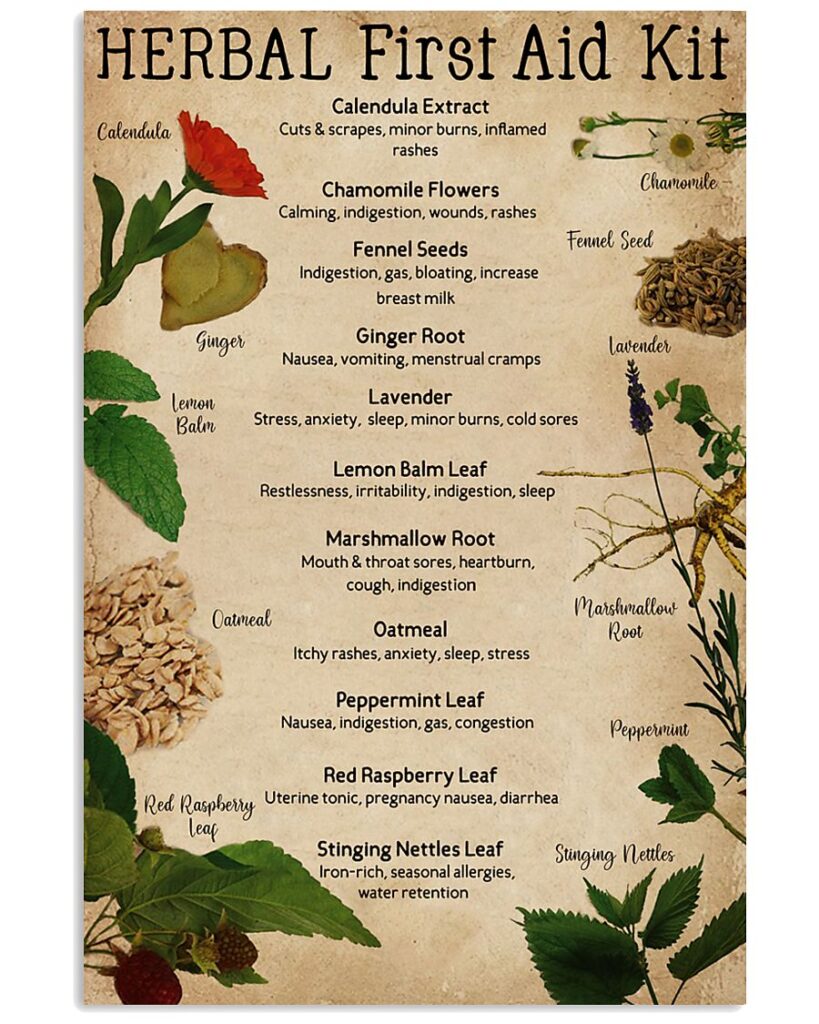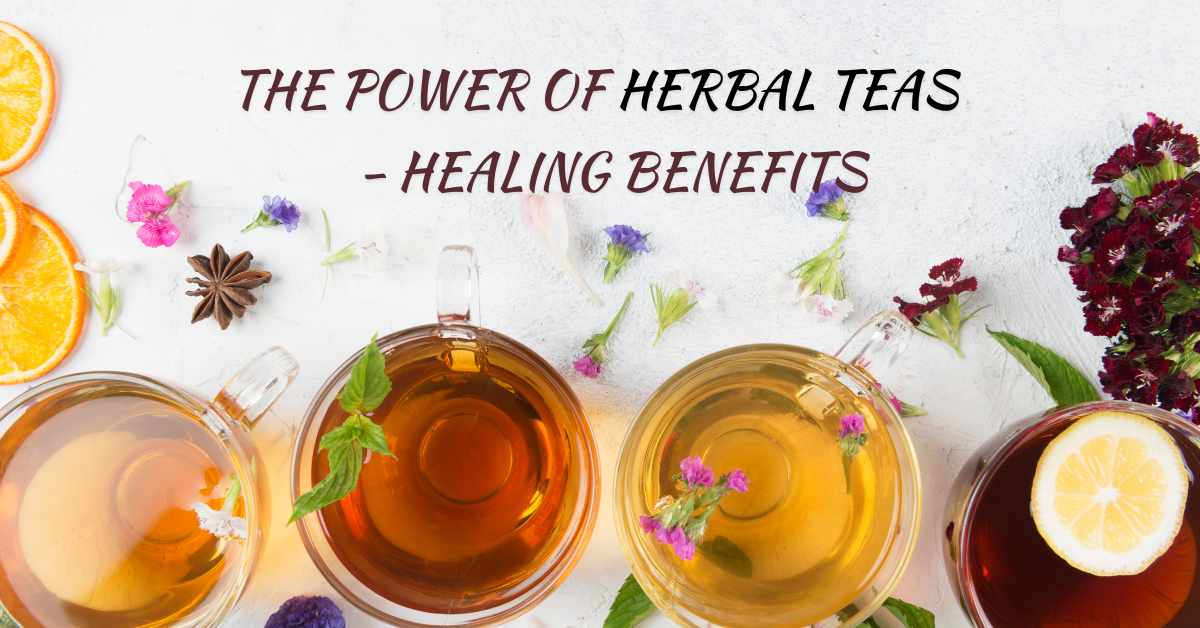Just like a warm hug in a cup, herbal teas have been cherished for centuries not only for their comforting flavors but also for their powerful healing properties. From soothing upset stomachs to boosting immunity, these natural remedies offer a holistic approach to wellness. In this blog post, we will explore the healing benefits of herbal teas and share some delicious recipes for you to try at home. So grab your favorite mug and let’s investigate the world of herbal medicine through the simple pleasure of a soothing cup of tea.
Understanding Herbal Teas
Defining Herbal Teas
Any infusion made from steeping herbs, flowers, roots, or seeds in hot water can be classified as herbal tea. These teas are caffeine-free and offer a range of health benefits, making them a popular choice for natural remedies.
Categories of Herbal Teas
Herbal teas can be categorized into various types based on their properties and health benefits. Some common categories include floral teas, such as chamomile and hibiscus, which are known for their calming effects. Additionally, there are herbal teas like ginger and peppermint, which are popular for aiding digestion and soothing upset stomachs.
This categorization helps individuals choose herbal teas based on their specific needs, whether it be relaxation, digestion, or immune support. Each category offers unique flavors and medicinal properties, making herbal teas a versatile and beneficial addition to one’s daily routine.
Healing Benefits of Herbal Teas
Common Ailments and Corresponding Herbal Teas
One of the remarkable aspects of herbal teas is their ability to alleviate common ailments. From soothing an upset stomach with peppermint tea to relieving stress and anxiety with chamomile tea, there is a herbal remedy for almost every discomfort.
Scientifically-Backed Advantages
An increasing amount of research supports the health benefits of herbal teas. Studies have shown that certain herbal teas, such as green tea and hibiscus tea, can help lower blood pressure, reduce inflammation, and improve digestion. These scientifically-backed advantages make herbal teas a valuable addition to a healthy lifestyle.
Herbal teas are not only flavorful and aromatic, but also packed with powerful antioxidants and necessary nutrients that can support overall well-being. Whether it’s boosting immunity, aiding in digestion, or promoting relaxation and better sleep, the benefits of incorporating herbal teas into your daily routine are plentiful.
Preparing Herbal Teas
Selecting Quality Herbs
To ensure the potency and effectiveness of your herbal teas, it is crucial to select high-quality herbs. Choose organic varieties whenever possible to avoid unwanted chemicals or pesticides. Look for herbs that are vibrant in color, aromatic, and free from any signs of mold or age. Fresh herbs or dried herbs from a reputable source will provide the best results in terms of flavor and healing benefits.
Herbal Tea Recipes
Herbal teas offer a natural and soothing way to address a variety of health concerns. From aiding digestion to boosting immunity, there is a herbal tea recipe to suit every need. Whether you prefer a simple chamomile and lavender blend for relaxation or a potent ginger and turmeric infusion for inflammation, experimenting with different combinations will allow you to discover the perfect herbal tea for you.
The world of herbal tea recipes is vast and diverse, with countless combinations of herbs and ingredients to explore. Whether you are looking to create a calming bedtime blend or a revitalizing morning pick-me-up, the possibilities are endless. Herbal teas can be customized to suit your personal preferences and health goals, making them a versatile and enjoyable addition to your daily routine.

Integrating Herbal Teas into Your Lifestyle
Daily Routines and Best Practices
Practices such as incorporating herbal teas into your daily routine can be a simple yet effective way to reap their healing benefits. Start your morning with a cup of energizing green tea or wind down in the evening with calming chamomile. Experiment with different blends to find what works best for you and make it a ritual to enjoy a warm cup of herbal tea at the same time each day.
Cautions and Considerations
Routines when consuming herbal teas, it is important to be mindful of potential interactions with medications or any underlying health conditions you may have. Some herbs can have potent effects and may not be suitable for everyone. Always consult with a healthcare professional before adding new herbal teas to your routine, especially if you are pregnant, nursing, or have any health concerns.
into Integrating herbal teas into your lifestyle can be a wonderful way to enhance your well-being, but it’s crucial to do so with caution and consideration for your individual health needs.
Conclusion
Hence, it is evident that herbal teas offer a plethora of healing benefits, ranging from improved digestion and reduced inflammation to enhanced relaxation and immunity. With a wide variety of herbs and flavors to choose from, incorporating herbal teas into your daily routine can be a simple and enjoyable way to support your overall health and well-being. By exploring different recipes and blends, you can tailor your herbal tea experience to suit your individual needs and preferences. Embrace the power of herbal teas and unlock their natural healing properties today.
References
- “Healing Herbal Teas: Learn to Blend 101 Specially Formulated Teas for Stress Management, Common Ailments, Seasonal Health, and Immune Support” by Sarah Farr: This book offers a comprehensive guide to blending herbal teas for various health purposes, including stress relief, boosting immunity, and managing common ailments.
- “The Herbal Medicine-Maker’s Handbook: A Home Manual” by James Green: While not exclusively focused on teas, this handbook provides valuable information on herbal medicine preparation techniques, including tea making. It covers the medicinal properties of various herbs and how to create effective herbal remedies at home.
- “Rosemary Gladstar’s Medicinal Herbs: A Beginner’s Guide: 33 Healing Herbs to Know, Grow, and Use” by Rosemary Gladstar: Rosemary Gladstar is a renowned herbalist, and this book serves as a beginner’s guide to medicinal herbs. It includes information on growing, harvesting, and using herbs for healing purposes, including recipes for herbal teas.


